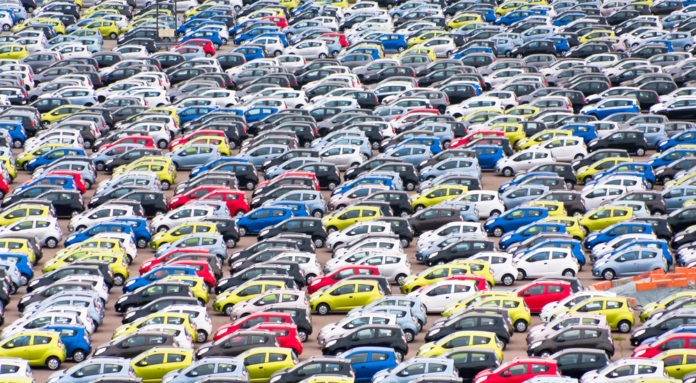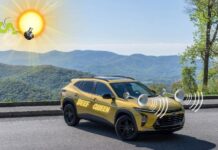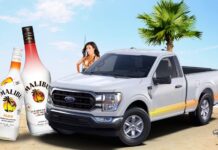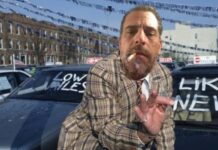A Kentucky car dealership has teamed up with local scientists in an attempt to completely revolutionize the industry. Predictably, similar to any good thing, there are plenty of opponents who don’t want the test to see the light of day.
Dolly Cologne, the owner of Dolly’s Deals in Kentucky, was recently approached by an elderly customer who was looking to recreate one of their used Chevy trucks. The dealership’s owner was dismayed that she couldn’t satisfy the gentleman’s request. After all, there were no used variations of the nameplate sitting on her lot, and the brand hadn’t produced the pickup in more than 50 years.
“I could see the disappointment on his face,” Cologne said. “He desperately wanted to drive around in the same truck that he learned to drive in.”
Cologne ended up spending all of her working hours hunting for a used version of the truck. Finally, she found one siting in Mexico, and she got the vehicle shipped up to Kentucky in an attempt to surprise the customer. Unfortunately, the prospective buyer was less than thrilled.
“He said that he wanted his pickup,” she explained. “I tried telling him that that wasn’t possible, but he was relentless. He kept talking about the specific acceleration of his old ride, and the fact that the radio stopped working at a certain volume. He wanted all of these super-specific amenities, something that we just couldn’t satisfy.”
That was until Dolly had the brilliant idea to hit up a pair of local scientists, Sir Ian Wilmut and Keith Campbell. The two brilliant men had toured the world since they successfully cloned a sheep back in the 1990s. The British duo was temporarily living in Kentucky, and Cologne visited the two with an odd request.
“When she asked us if we could clone a car, I was flabbergasted,” Campbell said while sipping a cup of tea. “This was a massive undertaking, and we weren’t sure if we were up to the task. Plus, considering social media these days, we were apprehensive about the backlash to our project.”
Still, when Cologne explained how the experiments could impact the entire automotive industry, Wilmut and Campbell finally relented. The two began exploring the nuances of each individual vehicle, and they initially utilized their tests on Matchbox and other toy cars. Finally, the day came when they felt confident to clone a hulking pickup, and they approached the elderly man who had wanted a replica of his used Chevy pickup.
“Unfortunately, he died during that four-week span,” Cologne explained.
Instead, the group switched focus to another generic vehicle, a 2000 Chevy Cavalier. Following a painstaking process, which included scraping off samples of the paint, upholstery, steering wheel, and engine, the scientists were ready to see if their project was a success. Incredibly, over the span of several weeks, the grouping of car materials evolved from a small mass into a hulking vehicle.
“I had never seen anything like that,” Wilmut explained. “It was honestly incredible.”
It didn’t take long for Cologne to apply for full rights of the technology, and she soon hired her own force of scientists (led by Wilmut and Campbell). Soon, all over Kentucky, prospective car buyers would see billboards touting the fact that Dolly’s Deals could clone any vehicle from any era.
Customers showed up in waves.
“It was definitely the busiest we’ve ever been,” she explained. “We must have brought in close to 100 million dollars during that week span. We had people from all over the world visiting the dealership. It was a smashing success.”
Customers seemed to agree with that sentiment. The dealership saw a 100-percent satisfaction rate when it came to their cloning technology. Michael Richards of Seinfeld fame was among those to visit the dealership, as the former actor requested that his early-90s Mustang be recreated.
“It was DYNAMITE,” Richards screamed. “G-g-giddy up, this technology is going to be HUGE, Jerry. Huge! I sold off all my Cuban cigars so I could invest.”
Missy Oldsmobile, a 69-year-old from Louisiana, was thrilled to learn that she could drive around in the same car that her mother operated back in the day.
“It even smelled like her,” Oldsmobile said. “Sure, some of the technology is outdated, and still takes me an hour to drive 20 miles. But even with those inconveniences, I love the new vehicle.”
Predictably, some groups are not happy with the science.
“Who is this dealership to play God?” asked one protester (who requested to remain anonymous). “This dealership is walking a slippery line when it comes to cloning vehicles. Why are we so confident that these vehicles are identical to their predecessors? Do they have souls? Because I know my new car does, but I’m not convinced that no cloned car does.”
Car-rights groups are also noting that the fact that unsuccessfully cloned vehicles tend to end up in the trash heap.
“So we’re deciding when these cars have reached the end of their rope,” Constance Bicker, the President of the Car Rights For Today and Tomorrow But Not Saturdays, said. “We’re deciding that these cars are dead, that they’re damaged goods. Maybe these vehicles could have been repaired instead of being unsuccessfully cloned. Maybe we would have had the same end result.”
Supporters aren’t solely excited about the prospect of owning their older car. Rather, they note all of the benefits this technology could have on the rest of the industry.
“We can now harvest mechanical parts for cars, making them cheaper for customers to acquire,” said Oldsmobile. “I really don’t understand how this could possible be interpreted as a bad thing.
For now, the dealership has temporarily halted the cloning promotion, noting that they’d prefer some clarity from local government. The Kentucky legislature recently released a statement on the matter, saying:
“We’ve received hundreds of letters from supporters and opponents of the cloning of cars. We believe these to be jokes, so we aren’t responding at this time.”
Dolly, meanwhile, will continue to support the initiative.
“I’m sure if that old dude hadn’t died, he’d be thrilled to learn that he could drive his own truck,” she said. “Maybe we can try cloning him and seeing if he likes it.”












